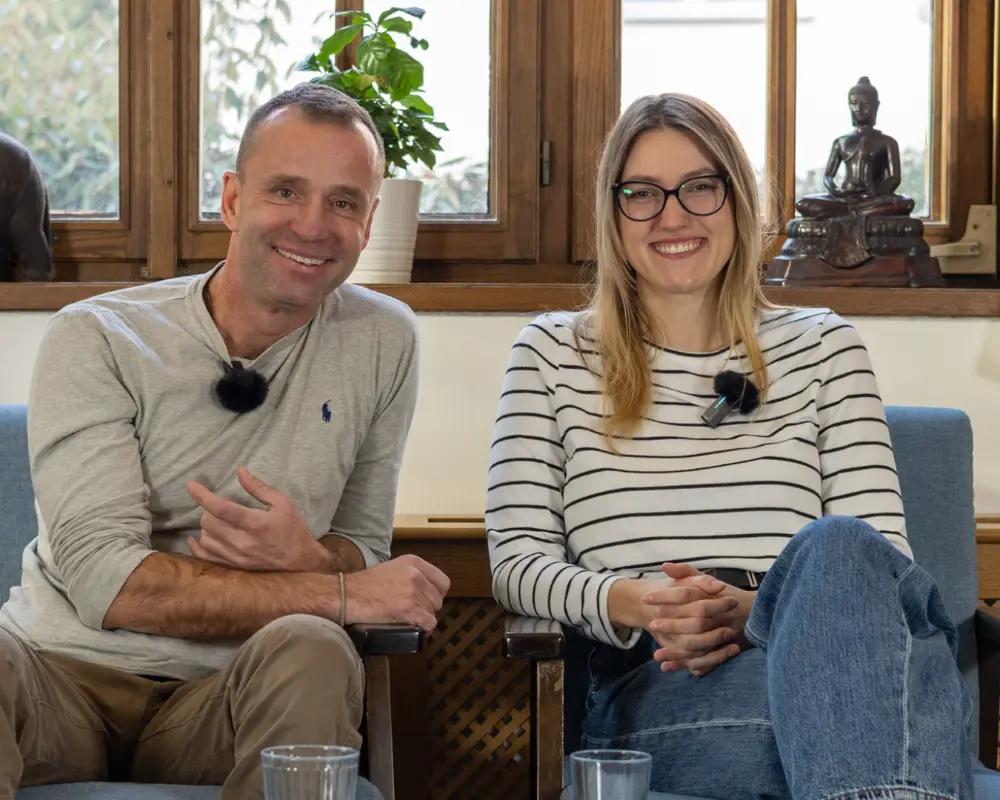The Online Generation: How Social Media is Changing Our Children's Lives
M.Sc. et B. Radek German
Social networks such as Facebook, Instagram, TikTok and others are today not only a means of entertainment, but also an important part of the daily life of many people, especially the younger population. Primary and secondary school students, in particular, spend a large amount of time on these platforms. Up to 25-30% of primary school pupils and 45-50% of secondary school students even spend four or more hours a day on social networks, especially on weekends, when time spent online increases even more. In our practice, there are also cases where an individual spends 8 or more hours a day on Instagram or TikTok.

Studies indicate that 3-7% of children aged 11-15 are at risk for social media use according to the Social Disorder Media Scale. Likewise, 34% of students aged 15-16 and 27% of students aged 17-18 are at risk in connection with spending time on social networks, according to the subjective perception of problems.
Social networks also offer a separate category where peers call for excessive use of drugs, the so-called extreme challenges, where we encounter overdoses and poisonings. This goes hand in hand with demonstrative suicides. Here we detect substances such as paracetamol, antidepressants, ibuprofen, but also benzodiazepines.
Another interesting piece of data is the fact that Czech adolescents have an average of up to 5 profiles on social networks, with the first profile most often created around the age of 11-12. These statistics point to the fact that young people are very active on social networks, and that intensive use of these platforms can have potentially risky consequences for their mental health.
Social networks not only offer entertainment, but can also be a means of comparing oneself with others. This process of comparison can be triggered by seeking confirmation of self-worth and significance through social media interactions. However, this constant pressure for validation can lead to disconnection from authentic identity and the creation of two distinct worlds – online and offline. This can create a sense of disconnection from oneself and confusion about one's identity.

The problem is exacerbated when an individual begins to seek validation and acceptance from their surroundings or the online world, instead of focusing on their own self-awareness and self-acceptance in real life. This desire for validation can lead to disconnection from one's self and denial of one's problems, which ultimately results in frustration, anxiety, and even psychological problems such as gender identity disorders, eating disorders, self-harm, or suicidal tendencies.
In addition, social networks can also be a tool by which children are abused for the promotion of products or services, or they are shown in situations that may not be in accordance with their awareness, especially at a time when they are not yet capable of doing so themselves. Therefore, they often become a place where children are exposed to the public without their own consent, which can have a negative impact on their psychological health, mainly in the future.
Social media can also serve as a vehicle for parents to feed and satiate their needs, whether it's for love, attention, or a sense of worth. They use children as a tool to fulfill their own unsatisfied needs, such as a deficit of attention or care or the aforementioned love.
It is important to be aware of the risks associated with using social media and find a balance between the online and offline worlds. Healthy use of social media involves the ability to maintain one's authenticity and identity independent of the approval of others, and to focus on building genuine relationships and self-acceptance.
Key recommendations for healthy social media use
Set limits: Limit the time you spend on social media. Setting daily or weekly limits can prevent addiction and encourage more time for real life.
Self-awareness and self-acceptance: Work on developing self-awareness and self-acceptance outside of the online environment. Activities such as meditation or conversations with loved ones can be beneficial.
Online and offline life balance: Balance your online activities with your time spent offline. Face-to-face interactions and time spent with family or hobbies are key to mental health.
Beware of comparing yourself to others: Be aware that social media often portrays an unrealistic picture of others' lives. Comparing yourself to this distorted image can lead to negative feelings about yourself.
Risk and privacy education: Learn about potential risks and privacy settings on social media. Protect your personal information and be critical of the information you receive on social media.
Seeking support: If social media causes anxiety, don't be afraid to seek professional help.
Source:
Report on digital addictions in the Czech Republic 2022″. -> CHOMYNOVÁ, P., DVOŘÁKOVÁ, Z., ČERNÍKOVÁ, T., ROUS, Z., GROHMANNOVÁ, K., CIBULKA, J., FRANKOVÁ, E. 2022. Report on digital addictions in the Czech Republic 2022 [Report on Digital Addictions in the Czech Republic 2022] CHOMYNOVÁ, P. (Ed.). Prague: Office of the Government of the Czech Republic.
Photo: Photo by Alexander Shatov , camilo jimenez on Unsplash
BE IN THE IMAGE
Information, articles and news
Do you need help?
You can send us a message or call us every day from 8 a.m. to 8 p.m. +420 228 226 101
This website is using cookies
You can either allow them all with the "I agree to all" button below, refuse or set the "Detailed settings" in detail. You can also change the selection later. More information about cookies in the Cookie Policy .




